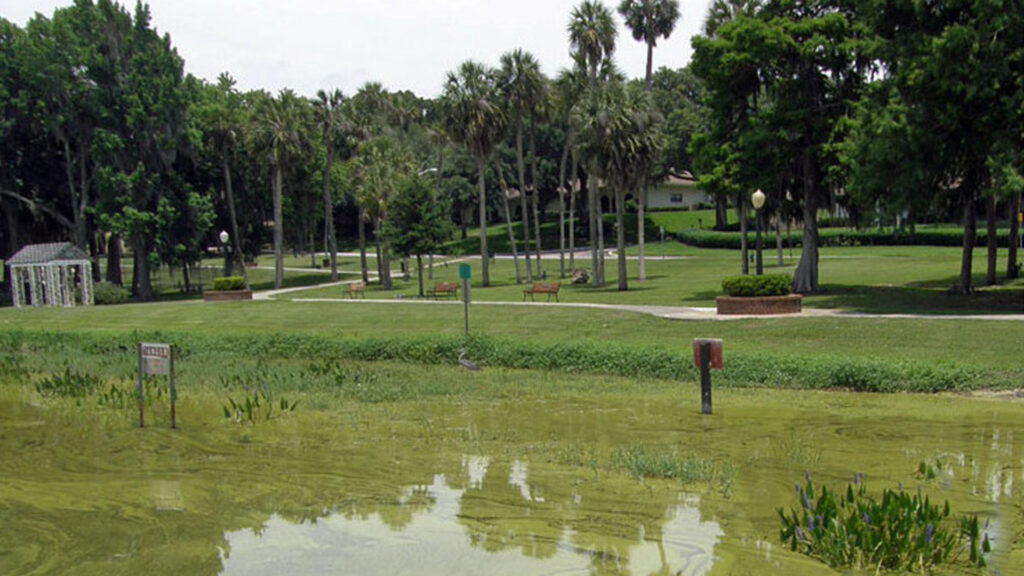By Dick Batchelor, Children’s Environmental Health Network
Clean water should be a given, especially for Florida’s 4.4 million children. But, tragically, it’s not.
Consider these alarming facts:
Florida has more acres of polluted lakes than any other state. Eighty percent of Florida’s 1,000 artesian springs are polluted. Nearly a million acres of estuaries and 9,000 miles of rivers and streams are contaminated with fecal bacteria.
Blue-green algae blooms are increasingly common and are linked to neurodegenerative diseases. Red tides, which cause respiratory problems, have grown dramatically in frequency and intensity.

No one should be exposed to such environmental dangers, especially not children, who are particularly vulnerable to the adverse effects of pollutants in both drinking and recreational water. That’s why I’m supporting the bold – and necessary – efforts to amend our state constitution so all Floridians, even those too young to vote and those not yet born, would have the fundamental right to clean and healthy waters.
If on the ballot and approved by Florida voters in 2026, the “Right to Clean and Healthy Waters” amendment would allow citizens to hold state agencies accountable when they fail, either through their action or inaction, to protect Florida’s lakes, rivers, wetlands and other bodies of water.
Citizens in other states already have constitutional environmental rights with which they’ve won important legal battles to protect their water and ecosystems. They’ve shown that constitutional environmental provisions are, as Widener University Professor Emeritus John C. Dernbach wrote, the “apex in our hierarchy of environmental and natural resources laws.”
In Florida, the seeds of constitutional change were planted a few years ago after a landmark environmental vote in Orange County was at odds with state legislation.
In 2020, 89% of Orange voters, frustrated with the state’s failure to adequately protect our waters, approved a “Right to Clean Water” county charter amendment. It was both a rights of nature and right to nature law, giving all county waters the right to exist, flow and be free of pollution and giving all residents a right to clean water. It was a historic vote that rightly attracted national attention.
But that same year, the state Legislature, protective of special interests, preempted the authority of local governments to pass laws granting rights to nature or granting citizens any rights to any aspect of the natural world not already granted in the state constitution. This preemption snuffed out similar efforts in other communities in the state.
That’s why organizers are going straight to voters and appealing for a change to the state constitution. Over two hundred organizations and businesses support the Right to Clean and Healthy Waters campaign, including Friends of the Everglades, VoteWater, Florida Springs Council, Waterkeepers chapters, Florida Wildlife Federation, Florida Sportsman and the League of Women Voters.

Floridians have a history of supporting environmental initiatives, and I’m confident they will approve this amendment, too, once it’s on the ballot. But qualifying it for 2026 is the hard part – 900,000 petitions are required. It’s a daunting task, but not out of reach.
The folks behind this grassroots effort want to duplicate the success of citizens who in 1992 collected the bulk of 480,000 petitions on one day, Election Day, to help qualify a ban on gill nets for the 1994 ballot, which 72% of voters approved. They accomplished this simply by marshaling an army of volunteer petition gatherers to polling places.
This strategy worked then, and it can work again. I urge you to go to the FloridaRightToCleanWater.org website, and click on the button that says, “Sign up to collect signatures at the polls,” and commit to spending a few hours of petition gathering.
Our children are counting on us.
Dick Batchelor is an Orlando business consultant and a former member of the Florida House of Representatives. He is co-chair of the Children’s Environmental Health Network, a national organization dedicated to protecting the developing child from environmental health hazards and promoting a healthier environment.
If you are interested in submitting an opinion piece to The Invading Sea, email Editor Nathan Crabbe at ncrabbe@fau.edu. Sign up for The Invading Sea newsletter by visiting here. Banner image: Dirty water flows from a pipe into a river. (iStockphoto image). To learn more about harmful algal blooms, watch the video below.



